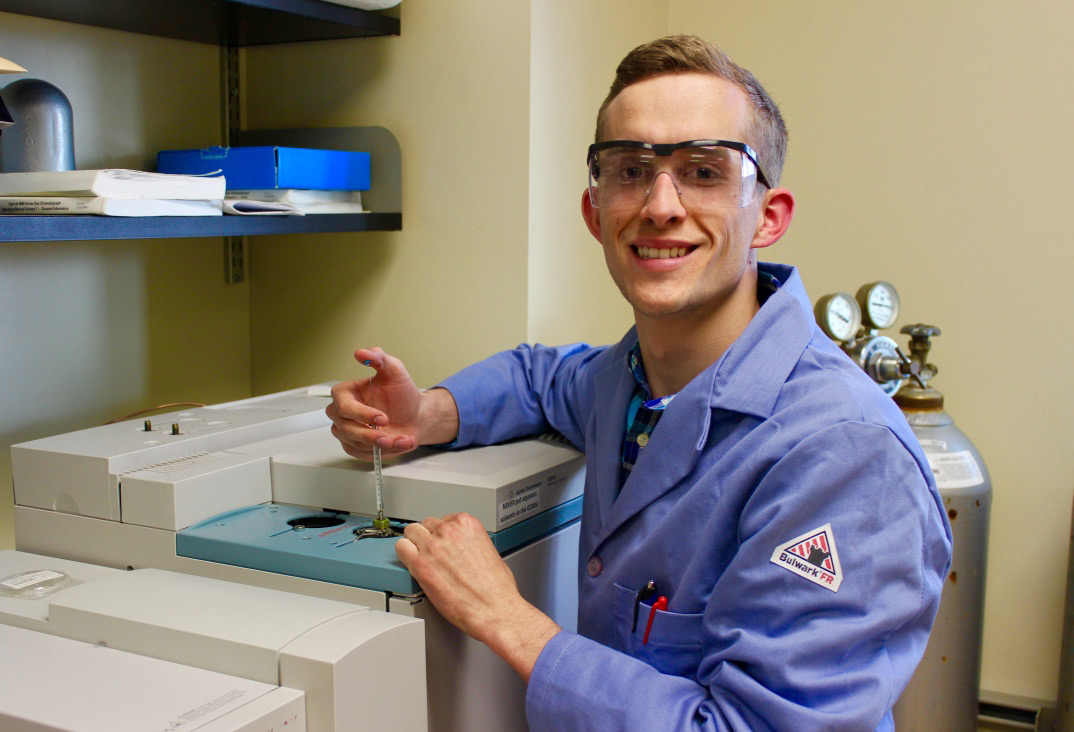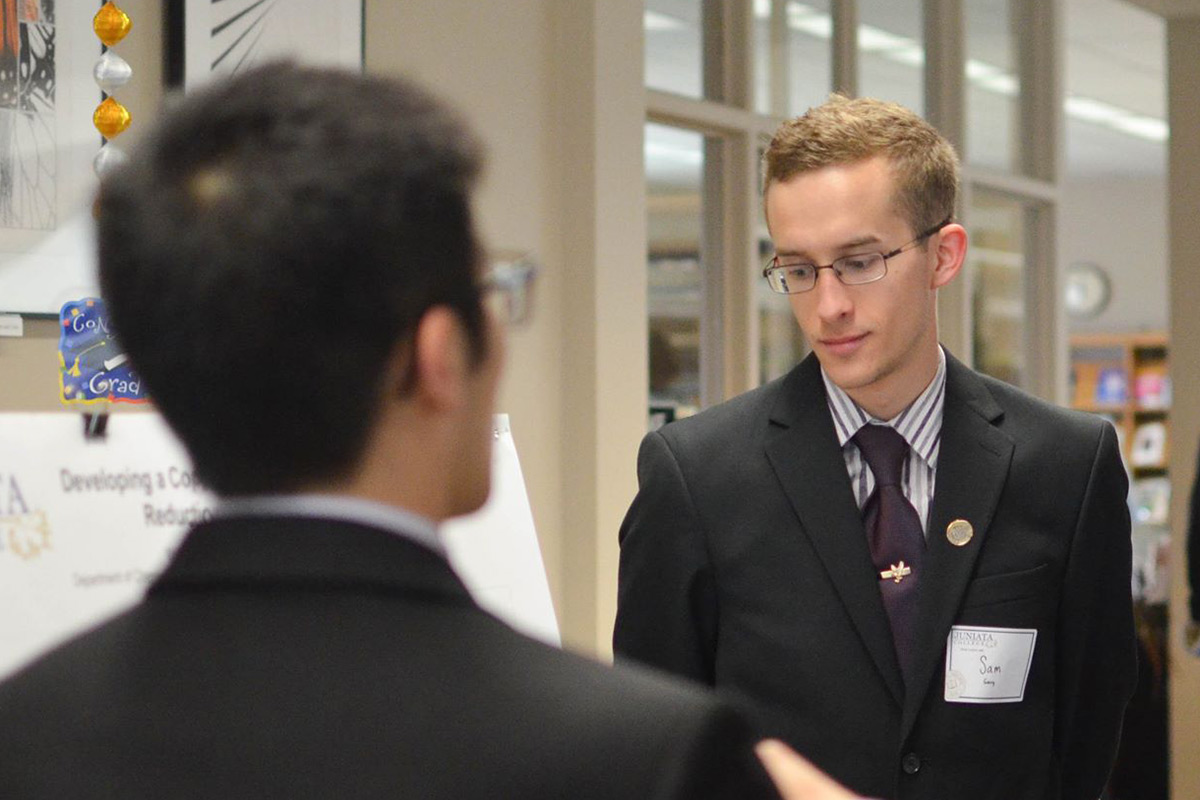When Sam Gary was a freshman, he spent many hours by his mother’s bedside as she battled a chronic connective tissue disorder requiring many doctor visits and treatments. He would ask the doctors question after question and, though they answered patiently, he felt dissatisfied—not with them but with the medical process he and his mom encountered.
As Sam recalls, “The doctors were helpful, but at the end of the day I felt that they were saying, ‘This is the best we can do because science hasn’t given us anything better yet.’”
Sam found his calling in those moments.
And then, he found a college where that calling could come to life.
When Sam set out for college, with an interest in biology, his goal was to be a doctor, a practicing physician. Evaluating offers, he enrolled at Juniata, relating to the College’s reputation for graduating people who are leaders in healthcare.
Sam was the first person in his immediate family to attend a four-year institution. He had some initial jitters about attending college, yet at Juniata, he thrived. Over the years, Sam earned a scholarship to study abroad, served as a teaching assistant for a biochemistry course and an organic chemistry lab, and was a career mentor for high school students. All the while, his experience with his mom motivated him.
Enter a mentor and a research partner.
All students at Juniata have two faculty advisers, who each help a student design a specific educational journey.
Turning to “adviser, confidant, and [now] a great friend,” John Unger, associate professor of chemistry, for advice, Sam was issued a challenge.
“Professor Unger knew my background, knew of my frustration with the way the healthcare system works,” Sam says. “He really dared me—‘encouraged’ isn’t a strong enough word—to focus on medical research, so that I could add new knowledge in hopes of providing answers to difficult medical ailments that affect peoples’ lives.”
Shortly after he joined Dr. Unger’s lab, Sam realized that scientific research is the impetus that drives discovery and increases our understanding of science and medicine.

After graduating, Sam accepted a position with the National Institutes of Health (NIH), conducting research in the lab of Ellen Sidransky, M.D.
Sam got to it.
His work in the laboratories at Juniata earned him the Amgen Scholarship which enabled him to engage in cutting-edge biomedical research with direct, translational implications for patient health at Washington University in St. Louis. This research, conducted under the mentorship of Dr. Sheng-Kwei Song, confirmed Sam’s interest improving clinical medicine.
He presented his findings at two professional conferences and has been listed as a co-author on four scientific publications.
He hadn’t yet turned 22-years-old.
While gaining all of this research experience, Sam met speakers who opened his eyes to many paths in the field of medicine that he never knew existed. This fed his calling, his need to find a way for science to provide better answers that would help his mom, help others, and—in the spirit of partnership at Juniata College—help his fellow students.
Sam envisioned that Juniata should host, each semester, a student-led seminar series that would bring in renowned speakers from the biomedical research community. Students would be able to meet, have dinner with, and ask questions of the kind of leaders in research that Sam was privileged to have met along his journey. With Prof. Unger and Prof. Amanda Siglin, the Director of the Health Professions Program at Juniata, Sam’s biomedical seminar series came to life.
Sam remembers how blown away his fellow students were at the inaugural seminar when they met Dr. D. Holmes Morton, a MacArthur fellow recognized as a TIME magazine's 100 Most Influential People. The seminar brought two medical professionals to campus, both of whom have made widespread advances through biomedical research. The presenters emphasized that practicing physicians can be involved in research and bring those findings directly to their patients’ bedsides and, by doing so, can achieve better outcomes. Sam and his Juniata faculty partners were proud that he made the seminar happen.
And, If Sam had attended an ordinary college, his story would end here. But Sam isn’t just another pre-med student, and Juniata isn’t an ordinary College.
Not satisfied to have pulled off one successful seminar, Sam inspired his fellow biomedical students and devised a plan for it to be an ongoing series for years to come.
Epilogue
After graduating, Sam accepted a position with the National Institutes of Health (NIH), where he investigated a novel genetic variant that may have important implications for explaining the link between Gaucher disease and myoclonic epilepsy in the lab of Ellen Sidransky, M.D. He has completed this post-baccalaureate research position and moved on to earning a combined M.D./Ph.D. at the University of Alabama at Birmingham. Yet through it all, Sam will say that the seminar series remains his “proudest achievement.”
Sam’s mom is progressing well and recently gained the ability to walk with minimal assistance—a stark contrast to being bed-ridden during her son’s sophomore year and continues to gain strength and overall wellness.
“She continues to serve as my role model,” Sam says.
And the Juniata biomed program is ever better because of the contributions of faculty and the inspiration provided by young scholars like Sam Gary.



